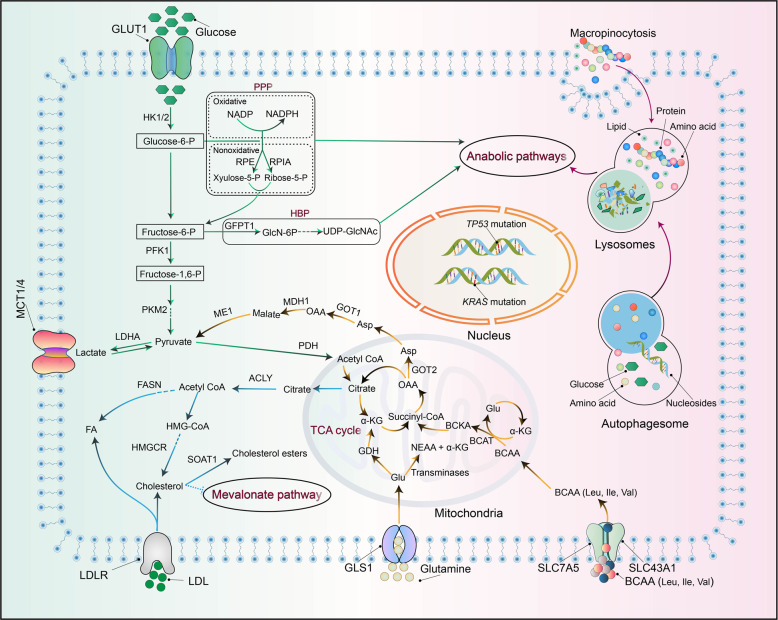Fig. 2.
Metabolic reprogramming in pancreatic cancer cells. KRAS activation and mutant TP53 enhance glucose metabolism to provide biosynthetic precursors for anabolic pathways, including the non-oxidative arm of the pentose phosphate pathway (PPP) and the hexosamine biosynthesis pathway (HBP). KRAS activation reprograms glutamine metabolism to sustain cellular redox homeostasis by increasing the NADPH/NADP+ ratio and recycling glutathione (GSH) via reduction of oxidized GSH. The BCAT2-mediated BCAA catabolism driven by KRAS plays a critical role during pancreatic cancer development. Enhanced nutrient salvaging, via the induction of macropinocytosis and autophagy, provides energy and regenerative nutrients, including glucose, amino acids, lipids, and nucleosides

